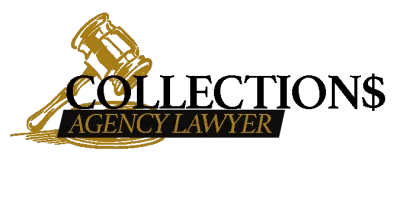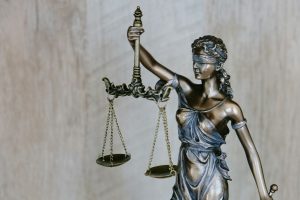The utilities and energy sector is currently facing a crisis in debt recovery, with challenges ranging from unpaid bills to regulatory hurdles and customer retention strategies. In this article, we will explore the tactics and strategies employed for debt recovery, technological innovations in debt management, and collaborative approaches in the energy sector.
Key Takeaways
- Effective debt collection processes are essential for utilities and energy suppliers to recover outstanding payments.
- Negotiation and settlement techniques play a crucial role in resolving debt issues and maintaining customer relationships.
- Technological innovations such as digital payment solutions and data analytics are transforming debt management in the energy sector.
- Collaborative industry partnerships and government initiatives are vital for addressing debt recovery challenges in the utilities and energy sector.
- Consumer education programs are key in promoting financial responsibility and reducing delinquent payments in the energy sector.
Challenges Faced by Utilities and Energy Suppliers
Regulatory Hurdles
Navigating regulatory hurdles in debt recovery can be a complex and challenging process. It requires a deep understanding of legal frameworks and compliance standards. Energy suppliers and utilities must adhere to strict regulations while pursuing debt recovery, which can impact the efficiency of the process. Additionally, regulatory hurdles may introduce delays and limitations in the litigation and collection processes, requiring careful navigation and strategic planning. Collaborating with legal experts and staying updated on regulatory changes is crucial for overcoming these challenges. It’s essential to develop a comprehensive approach that aligns with regulatory requirements and ensures ethical debt recovery practices. Industry partnerships and government initiatives play a vital role in addressing regulatory hurdles and fostering a conducive environment for debt recovery strategies. Consumer education programs also contribute to navigating regulatory complexities and promoting responsible debt management.
Debt Recovery Tactics and Strategies
Debt Collection Processes
Debt Collection Processes
Our collection services offer a 3 phase Recovery System to recover Company funds:
Phase One:
- Within 24 hours, the first of four letters are sent to the debtor via US Mail.
- Skip-tracing and investigation for the best financial and contact information on the debtors.
- Daily attempts to contact debtors for the first 30 to 60 days.
- Multiple communication channels used for resolution.
Phase Two:
- In-depth negotiation and settlement efforts.
- Skilled negotiators for disputed claims.
- Quick and fair resolution for disputed debts.
Phase Three:
- Legal recourse if necessary.
Contact us for more information.
Negotiation and Settlement
Negotiation and settlement are crucial stages in the debt recovery process. Effective negotiation can lead to mutually beneficial outcomes for both parties. Settlement agreements should be clear and legally binding. Transparency and communication are key to successful negotiations. Implementing a structured approach can streamline the negotiation process. Flexibility in settlement terms can foster positive relationships.
- Implement a table for presenting structured, quantitative data. Ensure it’s succinct and formatted correctly in Markdown.
- Use a bulleted or numbered list for less structured content, like steps, qualitative points, or a series of related items.
It’s important to maintain professionalism and respect during negotiations. Clear documentation is essential for future reference.
Business development initiatives can be integrated into the negotiation process to explore collaborative opportunities.
Legal Recourse
Debt recovery often involves due diligence to assess recovery possibilities. If litigation is recommended, a decision is required. Closure may be recommended if recovery is unlikely. Contact attempts and thorough investigation are key.
Technological Innovations in Debt Management
Digital Payment Solutions
Digital payment solutions have revolutionized the way debt management is handled. With the rise of online transactions and electronic payments, the process has become more efficient and convenient. This shift has led to faster remittances and improved access to account information. Additionally, it has enabled utilities and energy suppliers to offer 24/7 online account access, enhancing customer experience. Implementing digital payment solutions can significantly streamline the debt recovery process, leading to better outcomes for both parties involved.
- Faster remittances and electronic payments
- 24/7 online account access
- Improved efficiency and convenience
Embracing digital payment solutions is crucial for modern debt management, offering a seamless and customer-centric approach to debt recovery.
Data Analytics for Risk Assessment
Data analytics plays a crucial role in risk assessment for utilities and energy suppliers. It enables the identification of potential delinquencies and assesses the likelihood of recovery. Through digital transformation, data analytics empowers organizations to make informed decisions and optimize debt management processes. Leveraging advanced analytics tools, companies can gain valuable insights into customer behavior and payment patterns, enhancing their ability to mitigate risks and improve recovery rates. This data-driven approach enables proactive intervention and tailored strategies to address potential defaults and minimize financial losses. By harnessing the power of data analytics, utilities and energy suppliers can streamline debt management and drive sustainable financial performance.
Automation in Billing and Collections
Automation in Billing and Collections is revolutionizing the debt management landscape. Streamlining processes and improving efficiency, automation reduces manual errors and accelerates the collection cycle. Digital payment solutions enable fast remittances and electronic payments, enhancing cash flow for utilities and energy suppliers. Data analytics for risk assessment provides valuable insights for targeted debt recovery strategies. Automation also ensures 24/7 online account access, offering convenience to customers and improving customer retention. Implementing automation in billing and collections is a crucial step towards overcoming the challenges faced by the energy sector in debt recovery.
Collaborative Approaches in the Energy Sector
Industry Partnerships
In the energy sector, industry partnerships play a crucial role in driving innovation and sustainability. These partnerships foster collaboration between energy suppliers, technology providers, and regulatory bodies, paving the way for impactful solutions. By leveraging collective expertise and resources, energy companies can address complex challenges and drive positive change. Collaborative efforts also enable the development of sustainable practices and promote responsible energy consumption. Through strategic alliances, the industry can collectively work towards a more sustainable future, making ethical choices that benefit both businesses and consumers.
Government Initiatives
Government initiatives play a crucial role in shaping the landscape of debt recovery in the energy sector. These initiatives often focus on policy frameworks, financial support, and regulatory measures to address the challenges faced by utilities and energy suppliers. By fostering collaboration between industry stakeholders and government bodies, these initiatives aim to streamline debt recovery processes and promote financial stability within the sector. Additionally, they contribute to enhancing consumer confidence and trust in the energy market, ultimately benefiting both consumers and service providers. Through effective collaboration, the energy sector can navigate the complexities of debt recovery and work towards sustainable solutions for the industry.
Consumer Education Programs
Consumer education programs play a vital role in promoting energy efficiency and responsible consumption. These programs aim to empower consumers with the knowledge and tools to make informed decisions about their energy usage. By educating consumers about the benefits of sustainable practices, energy suppliers can foster a culture of environmental responsibility and resource conservation. Additionally, consumer education initiatives help to address project hurdles by promoting transparency and understanding of the energy sector’s complexities. Through collaborative efforts with community organizations and educational institutions, energy suppliers can effectively engage and educate consumers on the importance of sustainable energy practices. This collaborative approach fosters a sense of shared responsibility and encourages active participation in shaping a sustainable energy future.
Collaborative approaches in the energy sector have become increasingly important in today’s rapidly changing landscape. By working together, companies and organizations can leverage their expertise and resources to drive innovation and sustainable solutions. At No Recovery No Fee Debt Collections, we understand the value of collaboration and the impact it can have on achieving success. Our debt collection solutions are designed to simplify the process and provide effective results. Whether you’re a small business or a large corporation, our team is dedicated to helping you recover outstanding debts with efficiency and professionalism. Visit our website to learn more about our services and how we can assist you in achieving your debt collection goals.
Frequently Asked Questions
What are the common challenges faced by utilities and energy suppliers?
The common challenges include the impact of unpaid bills, regulatory hurdles, and the need for effective customer retention strategies.
What are the key debt recovery tactics and strategies used in the industry?
Debt recovery tactics include debt collection processes, negotiation and settlement, and legal recourse as necessary measures.
How are technological innovations contributing to debt management in the energy sector?
Technological innovations such as digital payment solutions, data analytics for risk assessment, and automation in billing and collections are revolutionizing debt management in the energy sector.
What are some collaborative approaches being adopted in the energy sector to address challenges?
Collaborative approaches include industry partnerships, government initiatives, and consumer education programs to address challenges in the energy sector.
How can utilities and energy suppliers improve customer retention amidst debt recovery challenges?
They can improve customer retention by offering flexible payment options, proactive communication, and personalized customer support during debt recovery processes.
What role do government initiatives play in supporting utilities and energy suppliers during debt recovery?
Government initiatives play a crucial role in providing financial assistance, regulatory support, and policy frameworks to help utilities and energy suppliers navigate debt recovery challenges.





